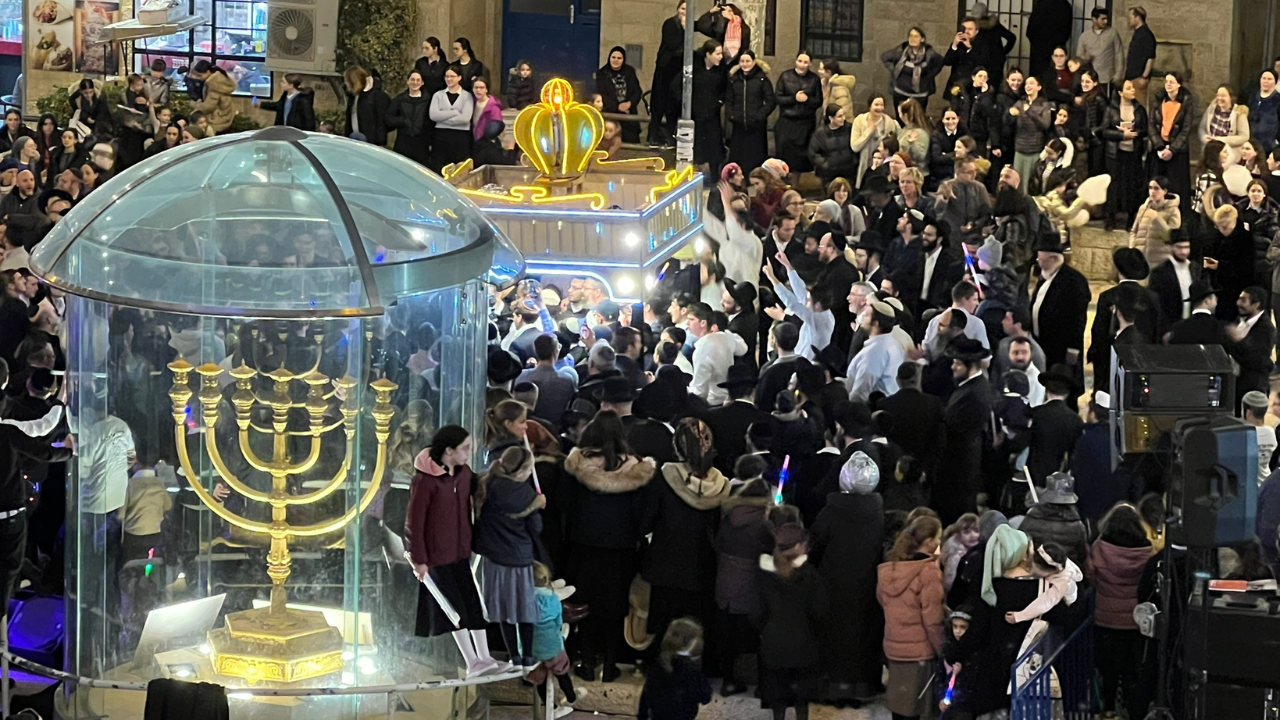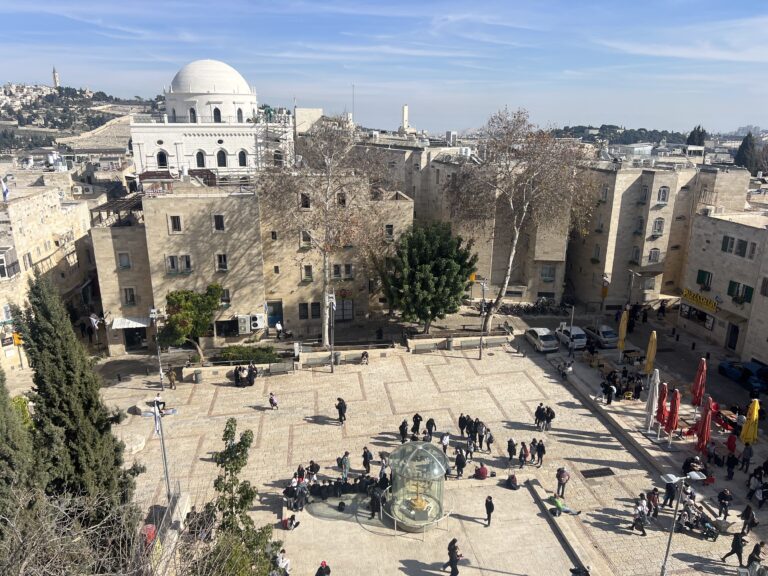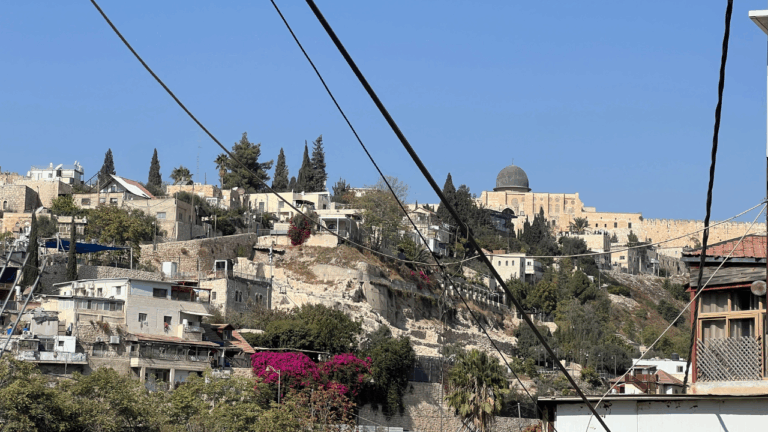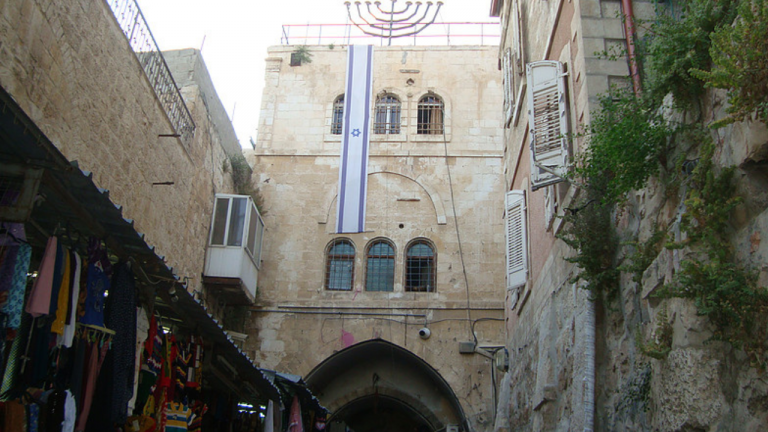Pipelines of Light: The Menorah, the Mikdash, and the Soul of the World
As Jerusalem was being rebuilt following the bitter seventy-year Babylonian exile, Zechariah HaNavi experiences a series of exceedingly cryptic visions. As we will read in this week’s haftorah (Zechariah 3-4), an angel of Hashem first shows the navi a vision of Yehoshua Kohen Gadol and his purification (we discussed this prophecy prior to Yom HaShoah this year). In the context of this vision, the malach makes a vague reference to a stone with seven eyes upon it. Because Zechariah did not fully understand the implications of this reference (see Malbim, ibid 4:1), the malach awakens him with a new vision. The navi sees a menorah with seven lamps. A large bowl of oil fuels the various lamps via seven tubes.
When Zechariah continues to question the meaning of this vision, the malach reveals that this is a reference to Zerubbavel – leader of Klal Yisrael – commencing the construction of the Beit HaMikdash in Jerusalem. He will bring out the cornerstone of the future Temple to cries of “Chein chein! Grace, grace!”
Inexplicably, Zechariah no longer questions the meaning of his visions. He now understands. But the humble reader of Tanach is left scratching his head. What could possibly be the connection between a seven-pronged menorah with pipes and a bowl of oil to the construction of the Mikdash in Jerusalem?

This vision, though puzzling on the surface, holds profound symbolic meaning. To uncover its deeper layers, we turn to the Malbim, who beautifully elucidates its mystical significance. The number seven is a deep allusion to the seven lower sefirot, spiritual pathways through which HaKadosh Baruch Hu interacts with this world. The single bowl fueling these pathways represents the unified source of all blessing in this world, the Ribono Shel Olam. The oil, representing the beracha and Divine providence entering this world, channels into the seven different lamps.
The menorah is a perfect metaphor for the Divine light that spreads to the entire world from the center of Jerusalem. Seven lamps and seven eyes – representing the seven pathways of Divine Providence and beracha – rest upon the humble rock, the foundation stone, of the Beit HaMikdash. Without this stone, the world would remain dark, cold, and spiritually barren. As they see the stone being re-established to its former glory, the nations of the world will finally realize “עיני ה’ המה משוטטים בכל הארץ-the eyes of Hashem scan the whole world! (4:10)” Everything is under His control, nothing is beyond His providence.
The powerful messages of this metaphor remind us of just how essential Jerusalem is. Without Yerushalayim ir hakodesh, the world is devoid of connection to HaKadosh Baruch Hu. Yerushalayim is the pipeline through which Divine light pours into this world. Without this “menorah”, the world would be left dark and meaningless. Truly, Jerusalem is the light of all worlds.
But Zechariah’s vision also painfully reminds us of Jerusalem’s missing essential piece. Without the Beit HaMikdash with the literal menorah illuminating it, a crucial part of the Divine illuminating device is missing. All moral corruption, injustice, and impurity can only exist because this world lacks the “grace” of the Beit HaMikdash in its full glory.
Until the menorah burns again in its rightful place, the world will remain dim. The world desperately waits for the return of that sacred light. Let us yearn for the day that it shines again from Tzion.



